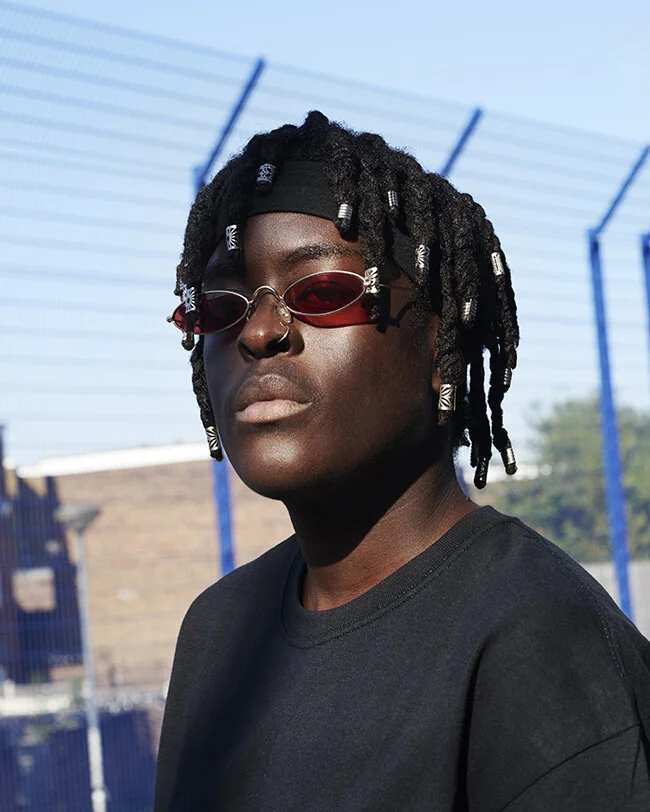Exploring Footballer Justin Fashanu’s Lasting Legacy As A Gay Icon
Words: Funmi Olagunju
June will usher in the celebrations for Gay Pride, undoubtedly a glorious time for acceptance and diversity, honouring the stonewall riots in June 1969. We will remember the stories that fought for the rights to live freely without discrimination and prejudice—to feel comfortable being our true and authentic selves. One brave soul who’s story also comes to mind is that of Justin Fashanu: the first openly gay black footballer in 1991. As the plight of the LGBTQ+ community evolves, stories like that of Justin’s stand as a source of inspiration. His story told over and over again, at a glance, conjures up crucial discussions yet the acceptance of homosexuality in football remains at a stalemate.
Some may describe Justin’s legacy as that of a superhero’s. As a young boy he excelled in sports exhibiting impressive endurance and strength, specially suited to his love of football. During his time in secondary school he would have a hard time being one of very few black people living in Shropham, Norfolk. Justin and his younger brother John were fostered by a white family who would raise them until they were old enough to fly from the nest. The documentary ‘Forbidden Tales’ paints a beautiful picture of Justins childhood and career, including his monumental goal in 1980 against Liverpool. His love of football and his wholesome upbringing would cement his place in British football history and his status as the first black £1 million transfer (from Norwich City to Nottingham Forest), keeping him at the forefront of the press and the publics affections.
““I feel that issues surrounding homophobia, racism and how prejudices can lead to mental health issues need more of a voice” ”
When Justin ‘came out’ in 1991, he was the only footballer to publicly disclose their sexuality. This was a remarkably brave act, requiring courage and serious mental agility in the face of societal rejection. Adding to the additional pressures he already carried as a black footballer during a time when racial tensions overshadowed Britain. With a Nigerian Father, Justin also felt the impact of rigid West African ideals surrounding masculinity and expected heterosexual orientation. His own brother, John Fashanu, tried to pay him £75,000 so he would stay silent and not ‘come out’; it was only later on in life that John confessed in interviews how he had been "a monster" to Justin. Yet in the face of all this, Justin continually contradicted these ideas and led his life flamboyantly with bountiful charisma and a swaggering walk, seemingly unfazed by the vitriol hate bubbling within society’s view of homosexuality.
It is almost 20 years since Justin committed suicide, a tragedy that reflects the intolerable rejection forced onto this brave individual from society. Since then a minimal number of footballers have come out as gay or otherwise, and many allies still refrain from speaking out for fear of backlash. In 2013, Leeds United footballer, Robbie Rogers, made it known that he was gay and similarly, Nicola Adams OBE, became one of the very few black female athletes to be openly bisexual. These examples offer an inkling of hope, dismantling the pressures that come with being a "hero" or "poster child" for people to look up to. Although these stories encapsulate a positive feeling, the lack of effort that is arguably perpetuated in representing gay people in football today discourages progressive direction for the movement. Where are the safe spaces for young minds that are being fostered in football, to talk openly and freely about their feelings and identity? Is preserving and commoditising the image of young heterosexual male footballers really the end or only goal?
The awareness of Justin's story today and the legacy he left behind as a gay football icon is being upheld by his niece, Amal Fashanu. Amal launched the Justin Fashanu Foundation a year ago to provide counseling for gay footballers who are choosing to stay silent about their sexual orientation. And she is passionately holding the torch for her Uncle by continuing the conversation about his life through her documentaries, pushing to change the football communities' suffocating view on homosexuality. On 19 February 2020, Justin Fashanu was finally inducted into the National Football Museum, with his memory existing in their football hall of fame. Coinciding with the Museum's new that they will also be hosting an LGBTQ+ tour, promoting LGBTQ+ history within the context of football. This recognition, though positive, raises the important conversation of why football is acclimatising so slowly to modern times. How many more talented sportspeople like Justin Fashanu will have to defend their identity until diversity and inclusion truly exists on the football pitch.
You can follow the Justin Fashanu Foundation on Instagram @thejustinfashanufoundation and also visit the website here.
Words by Funmi Olagunju











